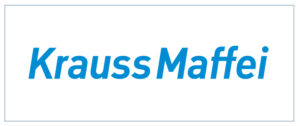Krauss Maffei: Working Together and Positioning for the Future in the Face of Adversity
KraussMaffei is the world’s largest manufacturer of plastics and rubber processing machinery and the market leader in the production of injection molding machines. KraussMaffei originally consisted of four independent, market leading brands: KraussMaffei, Netstal, Demag and Berstorff. At acquisition, the group recorded sales of €1.3 billion (US$1.7 billion), which were generated from over 40 locations in 20 countries. Based in Munich, Germany, the company holds over 1,600 patents and employs over 5,000 of the finest employees in the world.
Krauss Maffei entered 2008 with a record backlog and its facilities running 24/7 around the world. Unfortunately, as the global recession hit, customers put a freeze on capital equipment purchases. Order rates at Krauss Maffei dropped from €140 million per month to as low as €30 million per month.
Management knew it had too much production capacity and, what would be, a largely idle workforce, but it did not want to sacrifice the future of the business when the markets strengthened. More importantly from a strategic perspective, the company realized it had an incredible opportunity. Competitors would be cutting back R&D spending and new product introductions in the face of the worst downturn in 70 years. However, if Krauss Maffei increased its spending on research, development and new product introduction, it could further distance its industry leading technology and products in the market place. Madison invested heavily into the company during this period.
Another key concern of management was that Krauss Maffei’s highly skilled workforce needed to be protected for the future success of Krauss Maffei and its customers. Management, the board, as well as the company’s works council and labor union teamed with the German government to pilot a worker training and retention program that would allow the employees to keep their jobs for better days to come. This program was so successful, that it was eventually rolled out to dozens of other leading German manufacturers as the recession wore on.
Additionally, Krauss Maffei wanted to take its sophisticated technologies to emerging markets. This would also help cushion the workforce from the more severe downturn that was occurring in Western Europe and North America while giving the company a huge opportunity in the future. State-of-the-art facilities and technical centers where built in China and Eastern Europe.
Emerging from the recession, Krauss Maffei introduced a record number of new, award winning system solutions for its customers; recast its focus on system solutions as opposed to independent components (which makes the products more desirable to large, well-capitalized multinationals – cushioning the company from future downturns); created a more global footprint (emerging market revenue increased from 26% to 50% of corporate sales) as well as attained record sales and earnings.


